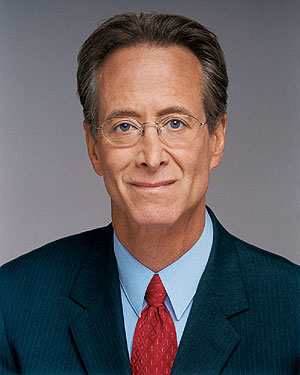
June 15. Greetings! Yesterday I handed out a hardcopy pre-conference version of this post to most everyone present. Here’s an updated post-conference version, with the CFMC intro language for both panels, followed by our longwinded “hidden in plain view” responses to each.
Panel 1: How do people consume the news, and what do they do with it? What is this panel all about?
The traditional models of news delivery are just that: traditions that have long since had to – or have yet to – fully adapt to their audiences. This does not mean that ethical journalism or the standards of reporting are not values to be preserved. In fact, they’re more important than ever as audiences have many more ways – and sources from which – to read, analyze, discuss and re-publish the news. Not all news outlets offer the same product, but all provide value even when the interaction with its readers is in quick, short bursts. In this panel, we’ll discuss how the news world has changed, how audiences respond to changing news products and what the challenges are in adapting traditional models to emerging publishing platforms.
Our Response: What people will do with the news in the future. They sure as hell won’t “consume the news” in the “traditional news model” sense of paying for the privilege of merely reading or watching it. In the new media landscape, “consumers” – nusers (news users) might be a better term – will pay for news they can use to improve their lives or those of their community and country. “The news” will no longer be relatively static, like a newspaper, but a flow between citizens and governments of current information from thousands of accessible sources. People will use the news to interact with each other in ways that get the results they want.
New media platforms – civic platforms, I hope – will enable the public will to express itself coherently and accurately and, if these platforms are well constructed, the public will do so in ways that meet the interests of individuals, communities and the nation a whole.
How will all this happen? First let’s limit our sense of “the news” to soft news not about sports or entertainment or food or travel or hobbies – the stuff that people want to know, in Tribune parlance – but to the hard news occurrences, events and (especially) government decisions that affect the lives of citizens in a democracy- the stuff that pe0ple need to know. This Tribune distinction: can we put it gently to rest and fondly say R.I.P.? For several decades this dreary notion of hard news surely made money for the Tribune, but in the long run, as we’ve seen recently, it ate away at the paper’s profitability and sapped its journalistic strength. Why? Because it devalues hard news, reducing it to a set of “important” yet, to the reader, unactionable occurrences.
Responding to a Tribune story about the abuse of TIFF funds in Chicago, for instance, you might call your Alderman or write a letter the editor but what good would that do? The Trib’s soporific “need to know” notion of hard news made government and democracy itself boring and irrelevant to peoples’ lives, especially to the younger (18-34) age group coveted by Trib advertisers. It’s not exaggerating by much to say that this numbing notion of the news reduced the paper’s readers to a semi-comatose state, dumbing them down to a point where were not just bored but alienated from politics and government itself.
This dumbing down was not accidental. The Tribune’s “need to know” news philosophy was merely a cutesy local version of a national trend among policy makers and mainstream media. Although no one said so at yesterday’s conference, I suspect many or most of us would agree that traditional models of news delivery reflected an establishment outlook with a vested  interest in manufacturing consent (Noam Chomsky zeroing in on Walter Lippman’s revelatory 1922 phrase).
interest in manufacturing consent (Noam Chomsky zeroing in on Walter Lippman’s revelatory 1922 phrase).
OK, so that’s enough moaning and groaning. Thanks to the Internet, everything is changing. New interactive media platforms – active and proactive followers of thousands of local blogs and national websites – are already upending and in time will probably completely disrupt the old system of passive “news consumption.” These are the green shoots of the the future of American journalism.
Yesterday it was repeatedly asserted, and I suspect generally accepted, that the biggest challenge confronting anyone involved in “adapting traditional [news] models to emerging publishing platforms” – in creating the interactive, proactive political discourse of the future – will be to meet the massive public demand for interactive media experiences that has fueled the growth of all modern communications technologies. This means inventing new platforms to facilitate ongoing interactive dialogues among those who in the past “made” the news (e.g. the Daley adminstration or the Obama administration) and those who “consumed” it (you and me, plain old ordinary citizens).
It will be fun. Tons of fun. News will regain its lost value, which has to do with the ability of real news to  connect people in ways that get people to act. People will feel alive and empowered. They will not just be throwing bricks at each other as we do today (and always will do) but will also be listening to each other and working together – competing and cooperating – in dynamic forums – games, contests, inquiries, dialogs, debates – that help articulate national, public and self interests with a degree of precision and productivity that American democracy has never seen.
connect people in ways that get people to act. People will feel alive and empowered. They will not just be throwing bricks at each other as we do today (and always will do) but will also be listening to each other and working together – competing and cooperating – in dynamic forums – games, contests, inquiries, dialogs, debates – that help articulate national, public and self interests with a degree of precision and productivity that American democracy has never seen.
To date, politicians and mainstream media are either overlooking, ignoring or obstructing this two-way flow – it’s hard to tell which – but their resistance to the new platforms will fade for economic as well as political reasons (see below, the Market of the Whole).
Properly managed and produced, the non-partisan, issue-centered, solution-oriented civic media that facilitates this dynamic information flow will create an entirely new kind of politics: one where all Chicagoans and all Americans (including politicians) are responsive and accountable to each other in solving the problems, resolving the conflicts and maximizing the opportunities that will shape the future of our city and nation.
Panel 2: How do you make money selling the news and who is willing to pay for it?
What is this panel all about?
The bright line between editorial and advertising has been a hallmark of ethical news outlets for years. But it’s fair to say that this line has both moved and blurred as technology outpaces the newsrooms around the country. Oftentimes, small sites that feature robust news reporting will have one person in the previously separate roles of publisher, editor and reporter. Moreover, the opportunities to create business models around previously-published news are numerous, but what happens when the ethical standards, already in place for these models, are ignored? And how should news organizations position their online properties to best maximize the way audiences consume the news?
Our Response: How You Will Make Money and Who Will Pay for What You Do?
Let me say first off that if I could answer this question fully I’d be a rich man offering jobs to lots of people. But I’m not (yet) and like many conference particpants, I feel I’m on the cusp of tremendous change at a strange time when the gap between what we know is coming and how we can make a living making it happen is still very wide.
I can offer couple general thoughts. Where traditional newsmedia made money by targeting audiences, the dominant newsmedia of the future – the multimedia platforms that generate audiences of 50 or 60 millions – will make money by aggregating smaller audiences into larger ones. These platforms will target the Market of the Whole of, say, all 9.5 million Chicagoland residents or all 300 million Americans. Feeding into them will be hundreds of local news sources, ideally appropriately compensated for their work. (Market targeting strategies will always be with us, but in the future they will feed into aggregation strategies.)
So how will we, as unemployed or underemployed journalists, make money? Yesterday’s conference was not reassuring on this point. One participant, a recently downsized small town newspaper reporter, said that in order to make money, he’d have to wait on tables and start up his own blog. Just Like Daniel X. O’Neal. In my pre-conference flyer, I wrote that journalists in the future will make money by making themselves expert about something and then putting people in touch with each other who have a vested interest in this particular of expertise. (This idea came up loud and clear yesterday: newsletters, etc.) As a journalist, you will do this on your own, selling stories and networks freelance, or you will find an employer who pays you to do all this and offers you a fabulous platform on which you can do it. In this scenario, you’ll be intimately involved not just with people (politicians) who are making decisions but with the people (citizens) who traditionally had these decisions imposed on them but who now are supplying you with information that will prove important to the making of sensible decisions. Here we discuss an interactive City News Bureau that might employ scores of these information facilitators (gotta find a better title than this!).
I’ve developed platforms to monetize the ideas put forth above. Here’s one, a mainstream media monster that takes you to the very mountaintop of civic media dialogs. And how about this baby, which targets college students and then aggregates them into a nationwide audience? Brilliant! (As the Englishman says inthe Guinness beer commercial.) Getting closer to home, here’s a somewhat vague yet I think interesting idea that occurred to me a couple months ago when I started following the local media upheaval scene. I’ve also got other ideas for Chicago area civic media dialogs that I will share with interested parties (you know what that means.)
I’m creating a team to realize some of these platforms and welcome inquiries from folks who get the civic media idea. I’m looking for the tech savvy altruists and farsighted venture capitalists.

 June 13 11am. Reading up yesterday and pondering the journalistic rush to monetize content, I found some refreshingly frank language from former Washington Post Managing Editor Steve Coll about the crisis of journalism. Setting the stage for Coll at the May 26 U.S. Senate Hearing on the future of journalism was former Baltimore Sun reporter David Simon, who spoke of the evisceration of newspaper journalism in the 1990’s by profit-hungry Wall Street and of journalism’s subsequent further erosion by the Internet and the global economic crisis. In his testimony, Coll said that journalism will develop new and adequate business models, but
June 13 11am. Reading up yesterday and pondering the journalistic rush to monetize content, I found some refreshingly frank language from former Washington Post Managing Editor Steve Coll about the crisis of journalism. Setting the stage for Coll at the May 26 U.S. Senate Hearing on the future of journalism was former Baltimore Sun reporter David Simon, who spoke of the evisceration of newspaper journalism in the 1990’s by profit-hungry Wall Street and of journalism’s subsequent further erosion by the Internet and the global economic crisis. In his testimony, Coll said that journalism will develop new and adequate business models, but


